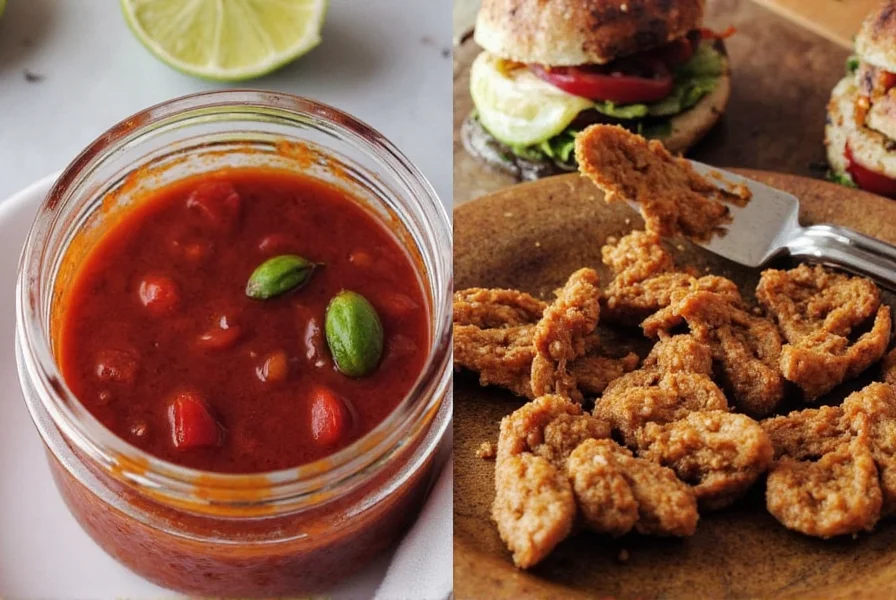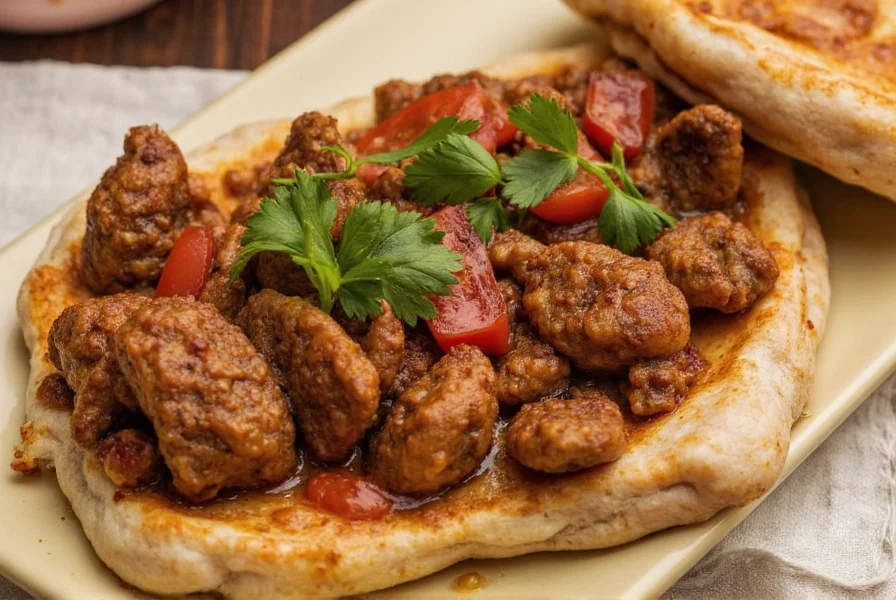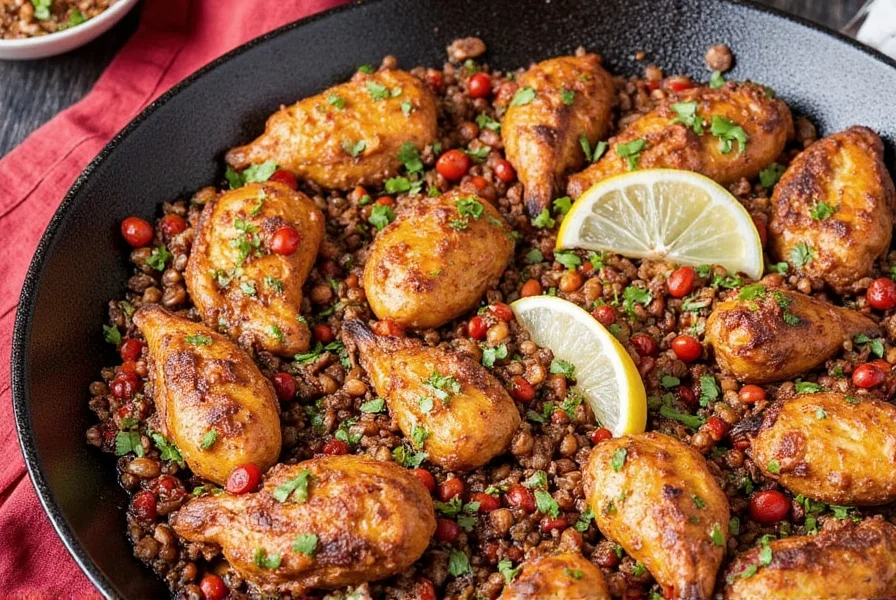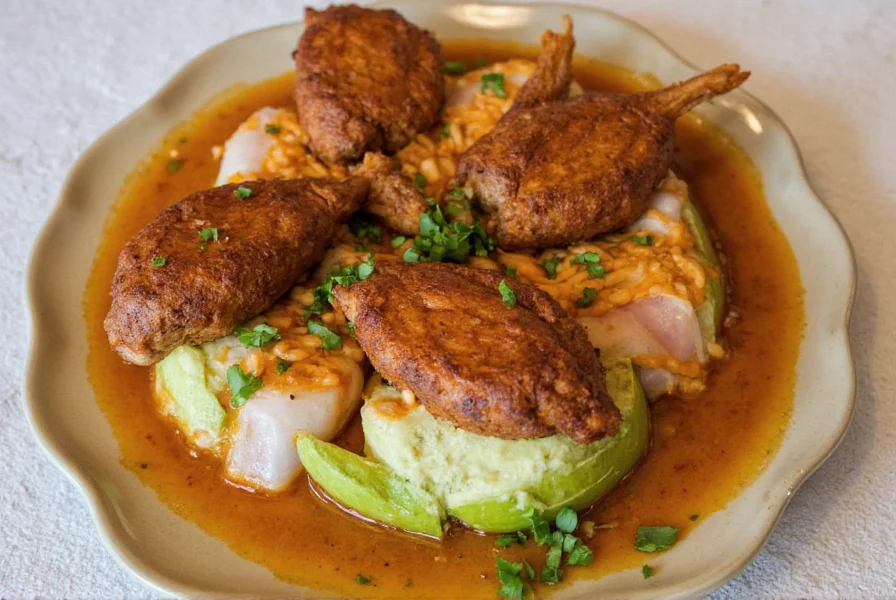Table of Contents
- Introduction to Cuban Marinade
- Key Ingredients in a Traditional Cuban Marinade
- Popular Cuban Marinade Recipes to Try at Home
- Pro Tips for Perfecting Your Marinade Game
- Buying Guide: Where and How to Source Authentic Cuban Marinade Ingredients
- Frequently Asked Questions About Cuban Marinade
- Conclusion
Authentic Cuban Marinade Recipe: How to Make Mojo for Perfect Grilled Pork
Authentic Cuban marinade, known as "mojo," is a citrus-based mixture essential for traditional Cuban dishes like lechón asado (roast pork). The key ingredients include fresh lime juice, orange juice, garlic, cumin, and olive oil. Here's how to make it at home for perfect flavor every time:

Key Ingredients in a Traditional Cuban Marinade
Let's break down the core elements that make a Cuban marinade stand out:
| Ingredient | Role in Marinade | Common Substitutes |
|---|---|---|
| Lime Juice | Acidic base that tenderizes meat and adds brightness | Lemon juice, orange juice |
| Garlic | Provides a strong savory backbone | Minced garlic in oil, garlic powder (use sparingly) |
| Orange Juice | Adds sweetness and depth | Mango juice, pineapple juice |
| Olive Oil | Carries flavor and helps with moisture retention | Vegetable oil, avocado oil |
| Cumin | Earty warmth and classic Cuban spice note | Paprika with a touch of coriander |
| Bay Leaves | Subtle aromatic lift | Thyme or oregano |
| Onion | Adds complexity and mild sweetness | Shallot or scallions |
A traditional recipe might call for fresh herbs like cilantro or culantro, which add an unmistakable island flair. While not always included, these green notes can elevate your marinade from good to extraordinary.
The Mojo Factor
"Mojo" isn't just a sauce — it's a cultural staple. Originating from the Canary Islands and adopted into Cuban kitchens, this marinade has regional variations but maintains a consistent essence. Some versions may use bitter orange (naranja agria), which delivers a more complex citrus layer than sweet oranges. If you can find Seville oranges or blood oranges, they're excellent substitutes.

Popular Cuban Marinade Recipes to Try at Home
Ready to get your hands dirty? Here are three tried-and-true Cuban marinade recipes that bring different vibes to your plate:
Classic Mojo Criollo
- 4 limes, juiced
- 4 cloves garlic, minced
- 1 small onion, chopped
- 1 tbsp ground cumin
- 1 bay leaf
- ¼ cup olive oil
- Salt and pepper to taste
This simple yet powerful combo is ideal for marinating pork or chicken overnight before roasting or grilling.
Orange-Garlic Mojo with a Twist
- Juice of 2 oranges
- Juice of 1 lime
- 5 cloves garlic, smashed
- 1 tsp dried oregano
- ½ tsp paprika
- ¼ cup olive oil
- A few sprigs of cilantro
This version leans sweeter and works beautifully on skirt steak or fish fillets. It's a favorite among home cooks looking for versatility.
Smoky Mojo for Grilled Perfection
- Juice of 2 limes
- Juice of 1 orange
- 4 cloves garlic, crushed
- 1 tsp smoked paprika
- ½ tsp ground cumin
- ¼ cup olive oil
- A dash of Worcestershire sauce
This smoky variation is perfect for charcoal grilling or using a smoker. It adds a campfire-like aroma that complements fatty cuts like ribs or whole chicken.

Pro Tips for Perfecting Your Marinade Game
While Cuban marinades are relatively straightforward, a few expert tips can help you achieve restaurant-level results every time:
Use Fresh Ingredients Whenever Possible
Fresh-squeezed citrus juices and freshly minced garlic make a world of difference compared to bottled or pre-minced alternatives. Don't skimp here — it's worth the extra effort.
Let It Rest
For best flavor penetration, marinate your protein for at least 4 hours, preferably overnight. However, avoid over-marinating acidic ingredients like citrus-based marinades on delicate proteins like fish, which can become mushy.
Don't Skip the Oil
Oil helps carry the fat-soluble flavor compounds deeper into the meat. Olive oil is traditional, but avocado or grapeseed oil work great too without overpowering the other ingredients.
Experiment with Herbs
If you want to elevate your marinade, try adding culantro, epazote, or even a handful of fresh thyme. These herbs are commonly used in Cuban cooking and add authentic depth.
Double Down on Flavor
After marinating, don't throw away the leftover liquid. Simmer it separately and use it as a basting sauce while grilling or drizzle it over the finished dish for a flavor boost.

Buying Guide: Where and How to Source Authentic Cuban Marinade Ingredients
Whether you're shopping locally or online, knowing where to find quality ingredients makes all the difference. Here's a breakdown of key items and our top recommendations:
| Product | Features | Advantages | Best For | Recommended Brands |
|---|---|---|---|---|
| Fresh Limes | Zesty and tart | Natural acidity, no preservatives | Daily use in marinades | Trader Joe's, Whole Foods Organic |
| Spanish Cumin | Earthy, warm flavor | Authentic Cuban flavor base | Traditional Cuban dishes | La Flor, Badia |
| Seville Orange Juice | Bitter, floral, complex | Adds authenticity to mojo | Specialty dishes, holidays | La Masía Bitter Orange |
| Extra Virgin Olive Oil | Rich, fruity, slightly peppery | Perfect carrier oil for flavor | Base for any marinade | Bertolli, California Olive Ranch |
| Organic Garlic Bulbs | Fragrant, pungent, fresh | More intense flavor than jarred | All marinades | SunGold, Filippo Berio |
| Bay Leaves | Aromatic, subtle, earthy | Enhances depth of marinade | Slow-cooked meats | McCormick, Simply Organic |
Where to Buy?
- Local Markets: Latin markets and international grocery stores often carry authentic spices and oils that mainstream supermarkets lack.
- Online Retailers: Websites like Amazon Pantry, Goldbelly, and LatinGrocery offer hard-to-find items like naranja agria or imported Spanish cumin.
- DIY Options: Make your own spice blends or preserve citrus zest and juice in ice cube trays for future use.
Frequently Asked Questions About Cuban Marinade
What makes a Cuban marinade authentic?
Authentic Cuban marinade (mojo) centers around fresh citrus juices (especially bitter orange or a combination of orange and lime), generous amounts of fresh garlic, cumin, and olive oil. The balance of citrus acidity, garlic punch, and earthy spices defines its authenticity. Traditional recipes often include bay leaves and onions as well. The key is using fresh ingredients rather than pre-made substitutes.
How long should I marinate meat with Cuban marinade?
For best results, marinate pork or chicken for at least 4 hours, but preferably overnight (8-12 hours). For beef, 4-8 hours is ideal. Be careful with fish and other delicate proteins, which only need 30 minutes to 2 hours in a citrus-based marinade to avoid becoming mushy from the acid. Always marinate in the refrigerator, not at room temperature.
Can I use bottled citrus juice instead of fresh?
While fresh-squeezed citrus is always preferred for the best flavor, you can use bottled juice in a pinch. However, avoid juices with preservatives or added sugars. For authentic results, fresh lime and orange juice make a significant difference in flavor complexity. If you must use bottled, look for 100% pure juices with no additives.
What's the difference between Cuban mojo and other marinades?
Cuban mojo stands out for its specific citrus profile (traditionally using bitter orange/naranja agria), prominent garlic, and cumin combination. Unlike many American-style marinades that rely heavily on vinegar or soy sauce, Cuban marinade uses citrus as the primary acid. It's also typically thinner than many marinades, almost like a sauce, and often includes aromatic elements like bay leaves that infuse flavor slowly during marination.
Can I use Cuban marinade for vegetarian options?
Absolutely! Cuban marinade works wonderfully with portobello mushrooms, tofu, cauliflower, or sweet potatoes. The citrus and garlic flavors complement vegetables beautifully. For vegetarian applications, you might want to reduce the marinating time to 1-2 hours to avoid the acid breaking down the vegetables too much. It's particularly delicious on grilled plantains or yuca.
How should I store leftover marinade?
Never reuse marinade that has come into contact with raw meat due to food safety concerns. However, you can set aside a portion of fresh marinade before adding it to raw meat to use as a basting sauce or finishing sauce. This can be stored in an airtight container in the refrigerator for up to 5 days or frozen for up to 3 months. Always bring refrigerated marinade to room temperature before using.
What's the most essential ingredient in Cuban marinade?
While all ingredients play important roles, fresh garlic and quality citrus (particularly bitter orange or a combination of orange and lime) form the essential foundation of authentic Cuban marinade. Without these key components, you lose the distinctive flavor profile that defines mojo. If you had to prioritize, fresh citrus and garlic would be the non-negotiable elements.
Conclusion
Cuban marinade — or "mojo" — is far more than a seasoning; it's a flavor passport to the Caribbean soul of Cuba. From its citrus-forward base to the layers of garlic and spices, this marinade brings life to meat, seafood, and even veggies.
Whether you're hosting a backyard BBQ or experimenting with global flavors in your kitchen, mastering the Cuban marinade opens up a world of delicious possibilities. Remember to keep things fresh, let your ingredients shine, and above all — enjoy the process!
So next time you fire up the grill, think Cuban. Let the zesty, garlicky aroma transport you to a sun-drenched island where food is love, and every bite tells a story.












 浙公网安备
33010002000092号
浙公网安备
33010002000092号 浙B2-20120091-4
浙B2-20120091-4